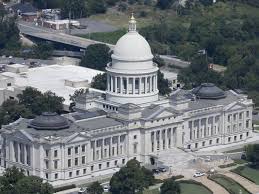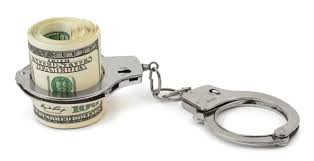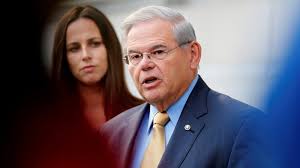U.S. Domestic Bribery Enforcement and State and Local Corruption

We spend a lot of time discussing foreign bribery. The United States has its own bribery problems, depending on the states in which a business operates and the extent to which it relies on government business. Sometimes our myopic approach ignores significant domestic bribery risks.
The FBI has long been at the forefront of the fight against federal and state bribery in the United States. State authorities enforce their own bribery laws and, on occasion, jointly investigate and coordinate with the FBI.
At the federal level, the FBI has been responsible for several significant prosecutions of Governors, Senators and members of Congress – e.g. Bob McDonell, Ted Stevens, Bob Menendez, William Jefferson, Aaron Schock, and related lobbyists (e.g. Jack Abramoff).
A significant federal criminal investigation of U.S. Navy officials, titled the “Fat Leonard” case resulted in the prosecutions of lobbyists and Navy officers. The investigation focused on a Malaysian businessman who bribed numerous navy officials with prostitutes and luxury items in exchange for classified information and sensitive business information needed to secure U.S. Navy contracts for his company’s port services. A number of officials, including an active U.S. Navy commander plead guilty or were found guilty after trial.
Federal Bribery Laws

The federal bribery statutes prohibit bribery and illegal gratuities. Section 201 prohibits bribery designed to influence an official act on both an active and passive basis. Passive bribery involves anyone who “directly or indirectly, corruptly gives, offers or promises anything of value to any public official or person who has been selected to be a public official, or offers or promises any public official or any person who has been selected to be a public official anything of value with” the intent to accomplish one of three things. 18 U.S.C. Section 201(b)(1). First, to influence an “official act.” 18 U.S.C. 201(a)(3). Second, to influence such public official to participate in any way in any fraud on the United States. 18 U.S.C. Section 201(b)(1)(B). Third, to induce such public official to act or omit to act in violation of his or her lawful duty. 18 U.S.C. Section 201(b)(1)(C).
Active bribery occurs when a public official “directly or indirectly, corruptly demands, seeks, receives, accepts, or agrees to receive or accept anything of value personally or for any other person, in return for participation in one of the three acts set forth above. 18 U.S.C. Section 201(b)(2). Bribery designed to influence an official act prohibits “individuals from giving government employees, while they are acting in an official capacity, compensation in return for special favors.”

The structure and substance of Section 201’s prohibition of illegal gratuities is similar to bribery intended to influence an official act. It restricts a direct or indirect gift, offer, or promise of anything of value to a public official, former public official, or person selected to be a public official on account of an official act performed or to be performed by such public official. 18 U.S.C. Section 201©(1)(A). The distinction between bribery and gratuities hinges on the different temporal qualities of each. “Bribery is entirely future oriented, while gratuities can be either forward or backward looking,” U.S. v. Schaffer 183 F.3d 833, 841 (D.C. Cir. 1999). Similarly, any public official, former public official, or person selected to be a public official, who “demands, seeks, receives, accepts, or agrees to accept or receive anything of value” on account of an official act by such person, violates the statute. 18 U.S.C. Section 201(c)(1)(B).

The United States Supreme Court narrowed the application of the official act element in the case United States v. Sun Diamond Growers. 526 U.S. 399 (1999). The Court noted that to establish a violation of this provision, the government must prove an actual link between the gratuity in question and a “specific official act” for or because of which such gratuity was given. Moreover, the Court held that for bribery to occur there must be a quid pro quo or “a specific intent to give something of value in exchange for an official act.” Id. A “public official” under this statute is defined as a person who occupies “a position of public trust with official federal responsibilities.” Generally, anyone who is responsible for carrying out duties under the auspices of federal power will likely be considered to hold a position of “public trust” and hence, be deemed a public official for the purposes of Section 201. As with the FCPA, the notion of “anything of value” entails virtually any personal benefit, financial or otherwise.
In addition to bribery and illegal gratuities, federal law prohibits activities that might give rise to a conflict of interest. 18 U.S.C. Section 208, which prohibits any officer or employee of the federal executive branch or any independent agency who participates in any “decision, approval, disapproval, recommendation, the rendering of advice or investigation, or otherwise in a judicial or other proceeding” or “other particular matter” in which such person or such person’s family member “has a financial interest.” The exceptions to this general rule include a determination, after full disclosure by the individual in question, by the “Government official responsible for appointment to his or her position” that such individual’s interest is “not so substantial as to be deemed likely to affect the integrity of the services which the Government may expect from such officer or employee. 18 U.S.C Section 208(b)(1). In addition, regulations adopted by the Office of Government Ethics may exempt such an interest as “being too remote or too inconsequential to affect the integrity of the services” of such official. 18 U.S.C. Section 208(b0(2). Other conflict of interest provisions prohibit a public official from acting as an agent for a foreign principal, which would require such person to register as a foreign lobbyist. 18 U.S.C. Section 219.
State Bribery Laws
At the state level, individual states have enacted laws prohibiting bribery of state governmental officials and, almost 40 states, prohibit commercial bribery between commercial entities. In many states, corporations that engage in bribery of public officials may be barred from receiving further government contracts or prohibited from receiving various state licenses.
State Corruption Levels and the S.W.A.M.P. Index

State governments are generally believed to suffer from higher corruption levels than the federal government, although there is controversy surrounding how you define and measure corruption. Public attention normally focuses on high-profile federal corruption scandals. State-level corruption, however, can have a significant impact on distinct populations in states, cities and counties.
The states with the highest number of convictions usually include New York, Florida, Texas, Pennsylvania, South Carolina, Louisiana, Illinois, Alabama, Ohio and California. The number and rate of prosecutions may reflect the state’s size, available law enforcement resources and state-level law enforcement priorities.
The Coalition for Integrity ranks the state of ethics in each U.S. state. The Coalition for Integrity analyzed the laws of the 50 states and and the District of Columbia related to the scope, independence and power of ethics agencies, as well as the acceptance and disclosures of gifts by public officials, transparency of funding expenditure and client disclosures for legislators.
The study, called the States With Anti-Corruption Measures for Public Officials, or SWAMP, Index, HERE, focused on the text of each state’s laws. It found Washington at the top with a score of 78% and North Dakota at the bottom, scoring 0%.

Washington State scored highest because it has independent ethics boards for both the executive and the legislative branches of state government, and they have the authority to investigate, hold hearings, issue reprimands and impose fines. The state also has strong gift rules that prohibit elected and appointed officials in each branch from taking more than $50 in gifts in a calendar year, the report said.
North Dakota, the report acknowledged, received 0% because it has no significant ethics regulation.















